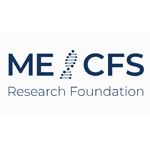The Federal Ministry of Education and Research (BMBF) is funding additional joint ME/CFS research projects with €15 million - summary and commentary by ME/CFS Research Foundation
On 1 September, the Federal Ministry of Education and Research (BMBF) issued a new "guideline for the funding of joint projects on researching the pathomechanisms of myalgic encephalomyelitis/chronic fatigue syndrome (ME/CFS)" (read the announcement, in German language). Am 12. September 2023 the BMBF made public, that it would support research into ME/CFS as part of the new guideline with a total amount of 15 million euros. The BMBF had previously already announced new funding opportunities for targeted research into ME/CFS under the federal budget 2024 .
This new funding guideline is the first call for proposals of this kind by the German government and hence an important milestone for research into ME/CFS in Germany. Federal Minister of Education and Research Bettina Stark-Watzinger also personally commented on Social Media on the importance of the new funding guidelines. Here, we provide a brief summary and our commentary on this important development, including our view on implications for our recently published research funding strategy of the ME/CFS Research Foundation.
Summary of the BMBF funding opportunity
The new BMBF guideline announces funding opportunities for interdisciplinary joint projects on targeted research into the disease mechanisms of post-infectious ME/CFS for a period of up to three years with a total budget of € 15 million. Applying projects should consist of four to six project participants or subprojects. Funding is available for universities and non-university research institutions as well as private companies. At least one partner from a medical university must be involved in each project. Applicants should have ample experience in the relevant subject or disease areas. Another requirement for potential funding is the participation of patients in the research process of the project.
The following research questions on the causes and mechanisms of ME/CFS are to be answered:
- What factors lead to the development of ME/CFS?
- What are starting points for prevention of the disease?
- Are there subgroups of post-infectious ME/CFS and can they be detected and differentiated using reliable biomarkers?
- What are starting points for accelerating diagnosis?
- What are starting points for the development of new, effective and targeted treatment options and patient care?
According to the BMBF announcement, the projects to be funded should draw on already established structures, data sets, patient registers and cohorts, as well as materials, to answer the above mentioned research questions. New data and biosamples can also be collected within the framework of the projects, provided that they can still be used during the project period. In addition, emphasis is placed on a comprehensive clinical phenotyping of the patient cohorts to be studied in order to be able to do comply with the complexity of the disease.
Funding will be provided to the following types of projects, among others:
- Bringing together, harmonising and analysing different data sources and material collections to identify genetic, cellular and molecular pathomechanisms (for example, clinical data, biomaterial collections, pathological, cell biological and physiological findings, imaging and omics data);
- Studies on relevant model systems if they are related to the clinical questions and synergistically complement clinical research;
- Identification of new predictive, diagnostic or prognostic biomarkers with relevance for the stratification of patient groups;
- Identification of relevant targets for the development of new therapeutic approaches.
Eligible for funding are therefore projects from the areas of preclinical and clinical research with the aim to investigate disease mechanisms and identify diagnostic and therapeutic starting points. Projects that deal exclusively with data modelling or confirmatory preclinical and interventional clinical studies (including therapy studies) are not eligible for funding under the current funding guideline. Applications for funding can be submitted until 11 December 2023. All information on the funding guideline as well as the possibilities for applicants to contact the funding coordinator Deutsches Zentrum für Luft- und Raumfahrt (DLR) can be found in the announcement of the BMBF (German language).
What does the BMBF funding directive mean for ME/CFS research and for our work?
As ME/CFS Research Foundation, we welcome the BMBF's current call for proposals and are pleased about the Federal Government's prioritisation of research into post-infectious ME/CFS. We consider the funding guideline to be another important milestone in the targeted research of this severe and complex disease, which is estimated to affect more than 500,000 people in Germany. With the new funding budget of €15 million, the BMBF will fund additional collaborative projects for research into ME/CFS from 2024. This additional funding thus complements the ME/CFS research networks that have already been in existence since 2022:
- National Clinical Study Group (NKSG) – € 10 million funding, current funding period 2022-2023 (more information about this here and here)
- Immune Mechanisms of ME (IMMME) – € 2.2 million funding, current funding period 2022-2025 (more information about this here and here).
NKSG and IMMME are also financed by the BMBF. Follow-up financing for the NKSG, which is currently financed until the end of 2023, has not yet been decided at this point. Negotiations on the federal government's budget for 2024 are still ongoing.
The Federal Ministry of Health (BMG) is also funding the establishment of an ME/CFS register and an ME/CFS biobank. Both are important, fundamental requirements for biomedical research (more on this here and here).
However, the public funding spent so far is not sufficient to address the ME/CFS disease burden in Germany. For example, there is an acute need for funding to implement clinical trials (incl. therapy studies) for the entire spectrum of disease and severity of ME/CFS. There is an urgent need for further funding measures to close the considerable global backlog and to meet the large shortage of ME/CFS care for patients in view of the lack of causal treatment options. To achieve this, Germany first and foremost needs long-term and adequate funding for targeted ME/CFS research through public financing. This investment should not only support project proposals, but also enable the establishment of further research competence centres.
Public tenders and funding projects are usually bureaucratically demanding and lengthy, and in some cases inflexible procedures. As the ME/CFS Research Foundation, we are addressing precisely this point and want to fund targeted project proposals quickly, unbureaucratically and flexibly in order to close knowledge gaps in the context of a dynamically developing ME/CFS research landscape. With our recently published research funding strategy and the announcement of our scientific advisory board , we provide the appropriate foundation for this. Our team is currently working on the funding of scientific projects that act as important complementary projects to the large BMBF and BMG-funded collaborative projects (especially NKSG, IMMME, ME/CFS Register & Biobank), that are not yet covered by public funding. We will provide more information on this in due course.
Furthermore, international networking of ME/CFS researchers is not covered by public funding. With the ME/CFS Research Conference, which we will again organise together with the Charité Fatigue Center (CFC) and the MRI Chronic Fatigue Center for Young People (MCFC) on 13 and 14 May 2024, we will finance an important aspect of ME/CFS research exclusively with private donations. As a Foundation, we are also working intensively on a systematic overview of the current state of ME/CFS research and current projects. We will launch an "ME/CFS Research Register" created specifically for this purpose. This will become a central digital platform for ME/CFS research in Germany (and later internationally) for public use. We intend to launch this platform before the end of this year (see also our announcements at the ME/CFS Symposium in May 2023). This work is also financed through private donations to the Foundation.
In summary, the current funding guideline by the German government addresses urgently needed research gaps. In the long term, more public funding is needed to advance the goals of understanding ME/CFS disease mechanisms, developing diagnostic and therapeutic targets, collecting biospecimens and data, and creating accurately phenotyped patient cohorts. As a Foundation, we will fund projects and aspects in these areas with income from private donations where government funding is not yet in effect. On the other hand, our work will decisively advance the international networking of ME/CFS researchers and the accessibility and visibility of the current state of research. Public funding measures and donor-funded projects thus act hand in hand with the common goal of developing causal therapies and improving the care of ME/CFS patients in the long-term.
How can you support the work of the ME/CFS Research Foundation?
There is still a long way to go before diagnosis, care and treatment of ME/CFS patients will one day become a medical and social standard. We at the ME/CFS Research Foundation are focussing on biomedical research, which we see as the key element in solving these problems (more on this in our research funding strategy). To do this, we need extensive support from private donors - patients, relatives, families, friends, associations, schools, networks, companies, initiatives, event organisers and all supporters. And if you can't support us directly, maybe you can share our story and motivate others to help. Because only together is such a feat possible.
We fully translate donations and other support into scientifically excellent research, networking and ultimately visible successes, i.e. better ME/CFS diagnostics and therapies. We are happy to work together with other organisations and initiatives - please contact us!
We appreciate all kinds of Support!
Please register for our Newsletter:






